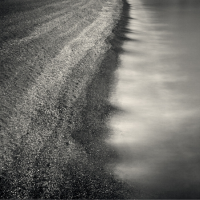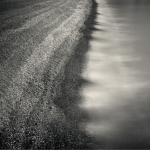 Do you ever feel like you are losing your faith? You are not alone.
Do you ever feel like you are losing your faith? You are not alone.
I encountered the following poem in NT Wright’s book, The Challenge of Jesus, and was so struck by the last stanza that this poem became my second favorite poem of all time.
It seems to describe his tumultuous struggle with faith, and the sadness, loneliness, and fear this caused. In the last line, what armies do you think he is talking about? Literal armies of governments and nations, or figurative armies of faith and religion? What is his solution? Is he right?
* * * * *
DOVER BEACH
By Matthew Arnold
1867
The sea is calm tonight,
The tide is full, the moon lies fair
Upon the straits; on the French coast the light
Gleams and is gone; the cliffs of England stand,
Glimmering and vast, out in the tranquil bay.
Come to the window, sweet is the night air!
Only, from the long line of spray
Where the sea meets the moon-blanched land,
Listen! you hear the grating roar
Of pebbles which the waves draw back, and fling,
At their return, up the high strand,
Begin, and cease, and then again begin,
With tremulous cadence slow, and bring
The eternal note of sadness in.
Sophocles long ago
Heard it on the Agean, and it brought
Into his mind the turbid ebb and flow
Of human misery; we
Find also in the sound a thought,
Hearing it by this distant northern sea.
The Sea of Faith
Was once, too, at the full, and round earth’s shore
Lay like the folds of a bright girdle furled.
But now I only hear
Its melancholy, long, withdrawing roar,
Retreating, to the breath
Of the night wind, down the vast edges drear
And naked shingles of the world.
Ah, love, let us be true
To one another! for the world, which seems
To lie before us like a land of dreams,
So various, so beautiful, so new,
Hath really neither joy, nor love, nor light,
Nor certitude, nor peace, nor help for pain;
And we are here as on a darkling plain
Swept with confused alarms of struggle and flight,
Where ignorant armies clash by night.




Seems most people interpret the last several lines as a reference to Thucydides’ account of the night battle at Epipolae in his History of the Peloponnesian War:
Some of the Athenians were already defeated, while others were coming up yet unconquered for their first attack. A large part also of the rest of their forces either had only just got up, or were still ascending, so that they did not know which way to march. Owing to the rout that had taken place all in front was now in confusion, and the noise made it difficult to distinguish anything. The victorious Syracusans and allies were cheering each other on with loud cries, by night the only possible means of communication, and meanwhile receiving all who came against them; while the Athenians were seeking for one another, taking all in front of them for enemies, even although they might be some of their now flying friends; and by constantly asking for the watchword, which was their only means of recognition, not only caused great confusion among themselves by asking all at once, but also made it known to the enemy, whose own they did not so readily discover, as the Syracusans were victorious and not scattered, and thus less easily mistaken. The result was that if the Athenians fell in with a party of the enemy that was weaker than they, it escaped them through knowing their watchword; while if they themselves failed to answer they were put to the sword. But what hurt them as much, or indeed more than anything else, was the singing of the paean, from the perplexity which it caused by being nearly the same on either side; the Argives and Corcyraeans and any other Dorian peoples in the army, struck terror into the Athenians whenever they raised their paean, no less than did the enemy. Thus, after being once thrown into disorder, they ended by coming into collision with each other in many parts of the field, friends with friends, and citizens with citizens, and not only terrified one another, but even came to blows and could only be parted with difficulty.
Wow. I had no idea of this background. Thank you.